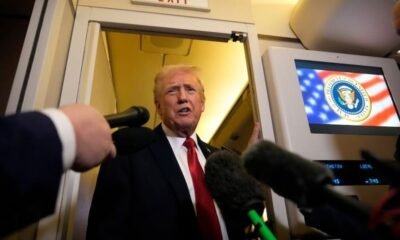INTERNACIONAL
La «Operación León Ascendente»: cómo Israel usó espías, drones de contrabando y la Inteligencia Artificial para sorprender y debilitar a Irán
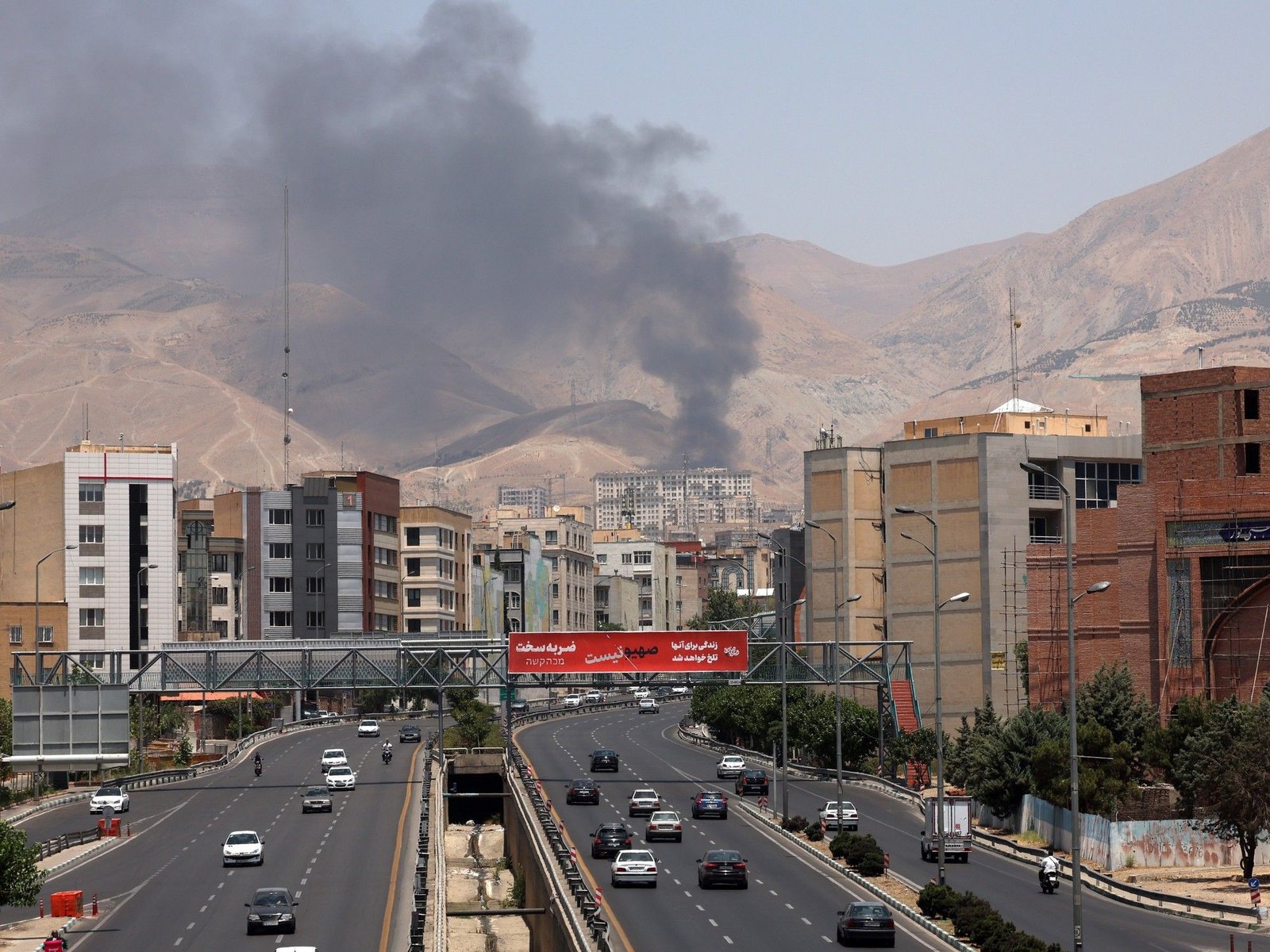
INTERNACIONAL
Schumer blocks 12th GOP bid to reopen government as Trump says Democrats ‘lost the negotiation’
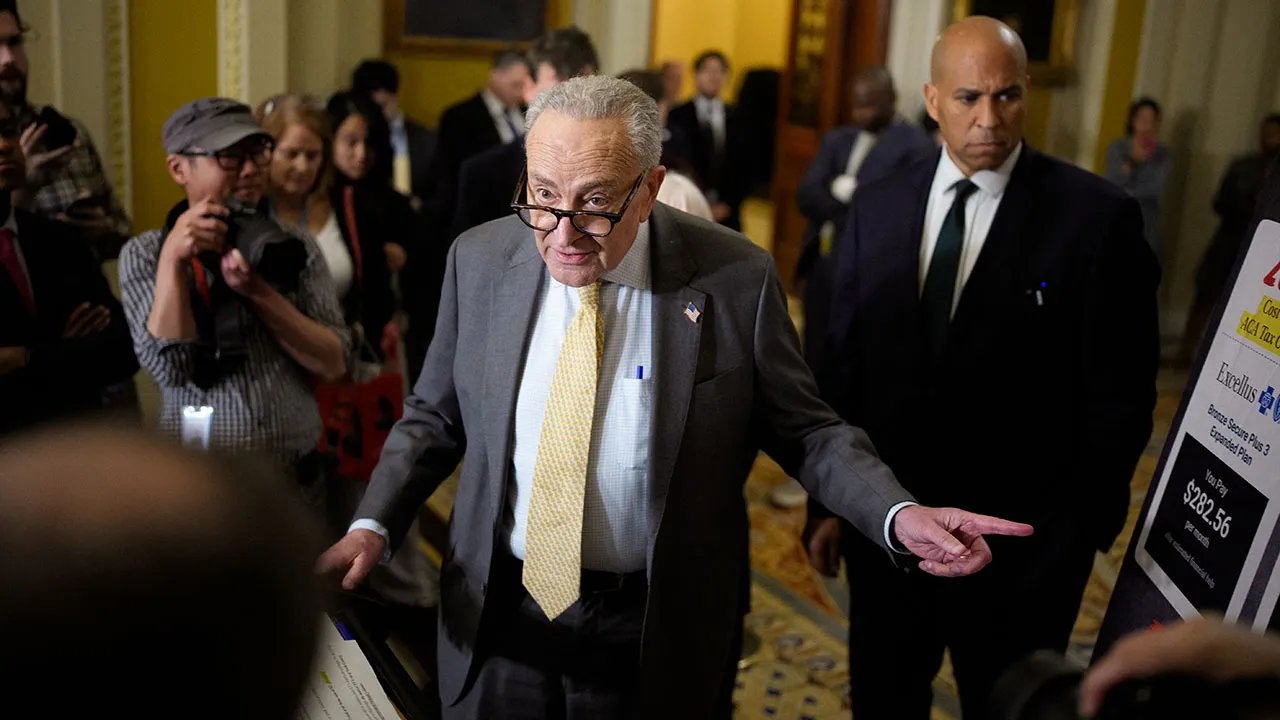
NEWYou can now listen to Fox News articles!
The government shutdown meandered into its 22nd day with no end in sight after a 12th GOP attempt to reopen the government was stalled and then blocked by Senate Democrats on Wednesday evening.
Senate Minority Leader Chuck Schumer, D-N.Y., and his caucus kneecapped Republicans’ bid to reopen the government for the 12th time. The latest failed vote comes as Schumer has demanded another meeting with President Donald Trump and on the heels of an almost 24-hour filibuster by Sen. Jeff Merkley, D-Ore, that pushed the vote late into Wednesday.
During his marathon floor speech, which began at 6:23 pm on Tuesday, Merkley spoke on authoritarianism — what he called the Trump Administration’s overreach on immigration, separation of powers, and more.
«Republicans have shut down the government to continue the strategy of slashing Americans’ healthcare,» Merkley said, referring to the healthcare-centered debate holding up consideration of the government’s funding.
He concluded his remarks at 5:00 p.m. on Wed.
Little has changed in the upper chamber since the shutdown began. Schumer and the Senate Democratic caucus demand that there be a real, ironclad deal to extend expiring Obamacare subsidies, while Senate Republicans remain adamant that there is no path forward available on the matter until the government is reopened.
SCHUMER REQUESTS MEETING WITH TRUMP ‘ANY TIME, ANY PLACE’ AS DEMOCRAT STALEMATE DRAGS ON
Senate Minority Leader Chuck Schumer, D-N.Y., steps away from reporters following a Democratic policy luncheon at the U.S. Capitol Building in Washington, Oct. 15, 2025. (Andrew Harnik/Getty Images)
But what is old is new in a repeating cycle, and Schumer wants to meet with Trump again.
Schumer, speaking on behalf of House Minority Leader Hakeem Jeffries, D-N.Y., requested another meeting with Trump ahead of the vote in a bid to go around Senate Majority Leader John Thune, R-S.D., and congressional Republicans to secure a deal.
There have been informal talks — more casual conversation than true negotiation — between Republicans and Democrats, but nothing has materialized that puts lawmakers any closer to solving the ongoing stalemate.
«Hakeem and I reached out to the president today and urged him to sit down and negotiate with us to resolve the healthcare crisis, address it and end the Trump shutdown,» Schumer said. «He should sit — the things get worse every day for the American people. He should sit down with us, negotiate in a serious way before he goes away.»
The last time the top congressional Democrats met with Trump came just a day before the climactic vote to avert a shutdown. Neither side walked away with a compromise, or agreement, to keep the lights on.
SENATE DEMS EMBOLDENED BY WEEKEND RALLIES BLOCK GOP PLAN TO END SHUTDOWN FOR 11TH TIME
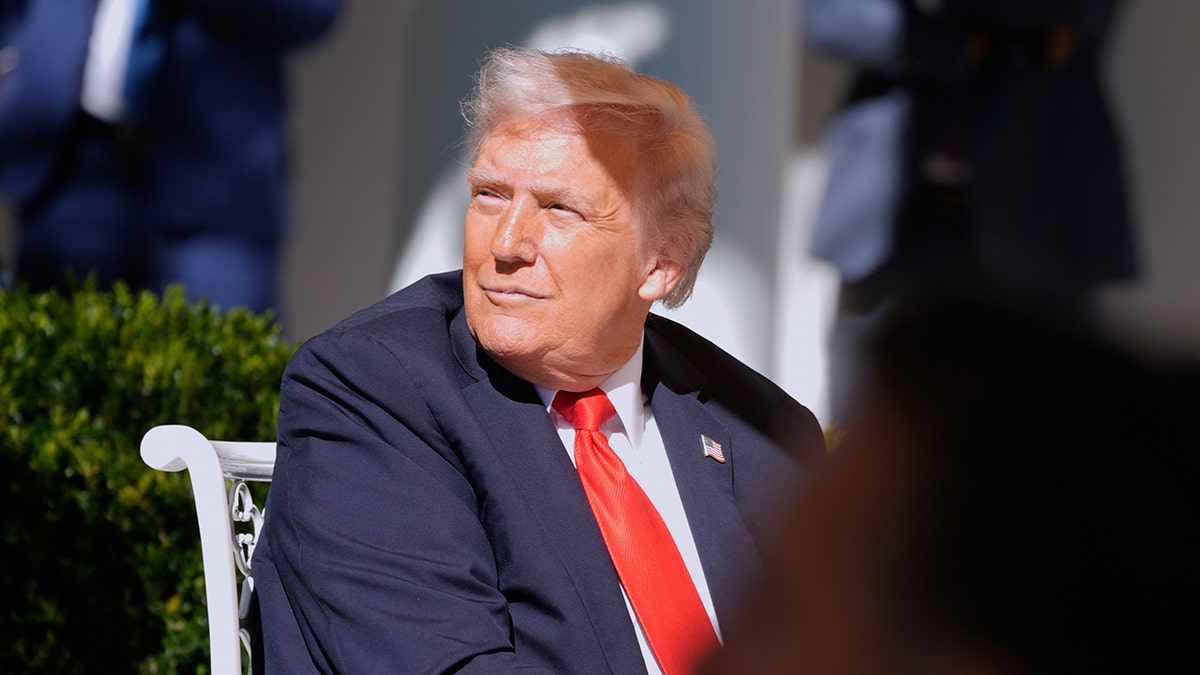
President Donald Trump listens as Senate Majority Leader John Thune, R-S.D., speaks during a lunch with Republican senators on the Rose Garden patio at the White House in Washington, Oct. 21, 2025. (Manuel Balce Ceneta/AP)
Fast-forward to the shutdown’s fourth week, and Trump signaled he’d speak with Schumer and Jeffries — only after the government is reopened.
«The government has to be open,» he said. «You know how long it will take for them to do that? Just say, ‘OK, government is open.’ That’s it. There is nothing — They’re not negotiating.»
«What they’re doing is saying they lost the negotiation,» Trump continued. «And when we got the great ‘big beautiful [bill]’ done, they lost the negotiation. Now they’re saying, ‘Well, we want to get some of the things we lost.’ But the problem is the things they lost are very bad for our country.»
Congressional Democrats’ initial demands, made in a counter-proposal to the House-passed continuing resolution (CR), called for a permanent extension to the enhanced Obamacare premium tax credits and guardrails on Trump’s ability to claw back congressionally approved funding, among other things.
SCHUMER’S SHUTDOWN SCHEME EXPLAINED: DEMS DOUBLE DOWN ON OBAMACARE CREDITS AS STANDOFF DRAGS ON
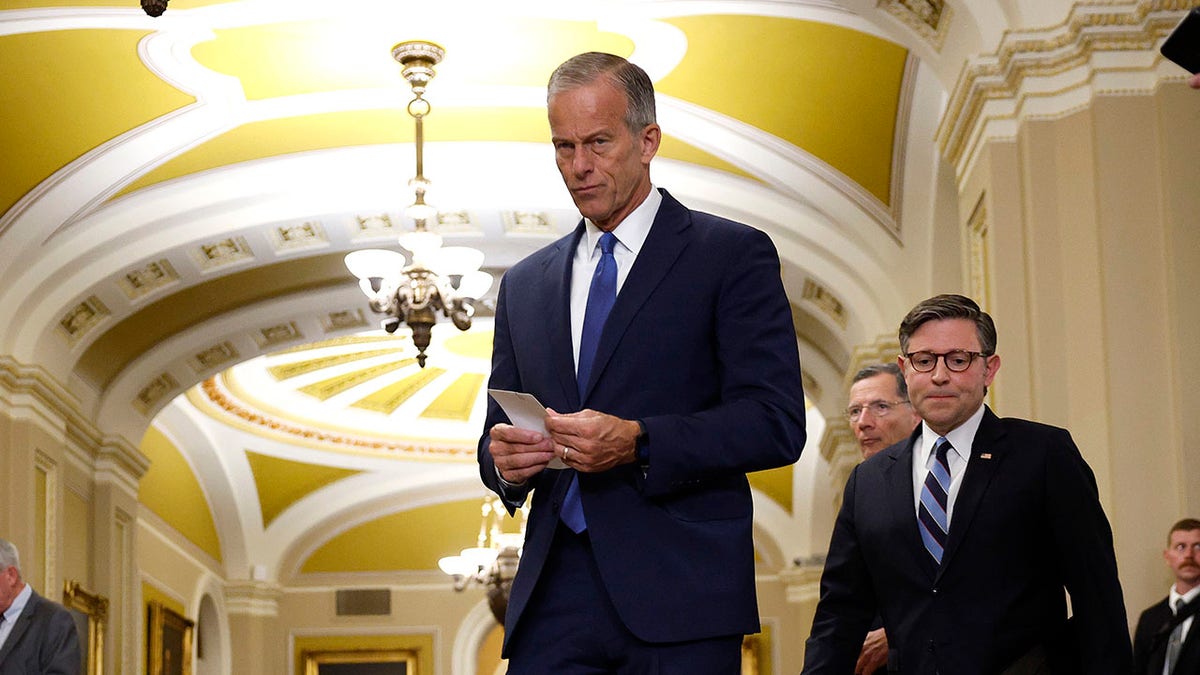
Senate Majority Leader John Thune, R-S.D., left, and House Speaker Mike Johnson, R-La., pictured at the US Capitol in Washington. (Kevin Dietsch/Getty Images)
A White House official doubled down on Trump’s position and told Fox News Digital, «We will not have policy conversations while the Democrats are holding the American people hostage. Reopen the government.»
While Democrats desire more than just an extension to the COVID-19-era subsidy, they’ve made their primary argument all about the tax credits.
CLICK HERE TO GET THE FOX NEWS APP
Thune offered Senate Democrats a vote on the subsidies, but so far they have declined to take the leap and instead are holding out for a guaranteed outcome in the shutdown fight. However, that is unlikely to come as Republicans and the White House, so far, are equally dug in against Schumer’s demands.
«I think [Trump] wants the Democrats to take ‘yes’ for an answer,» Thune said. «We’ve offered them a lot of the things they were asking for — a normal appropriations process, an opportunity to get a vote on some of the things that they want to see voted on, with respect to the expiring Obamacare enhanced subsidies. But that can’t happen until we open up the government.»
senate,government shutdown,chuck schumer,donald trump,health care healthy living,politics
INTERNACIONAL
Rodrigo Paz aseguró que Bolivia solo establecerá relaciones con países que “tengan la democracia como principio”
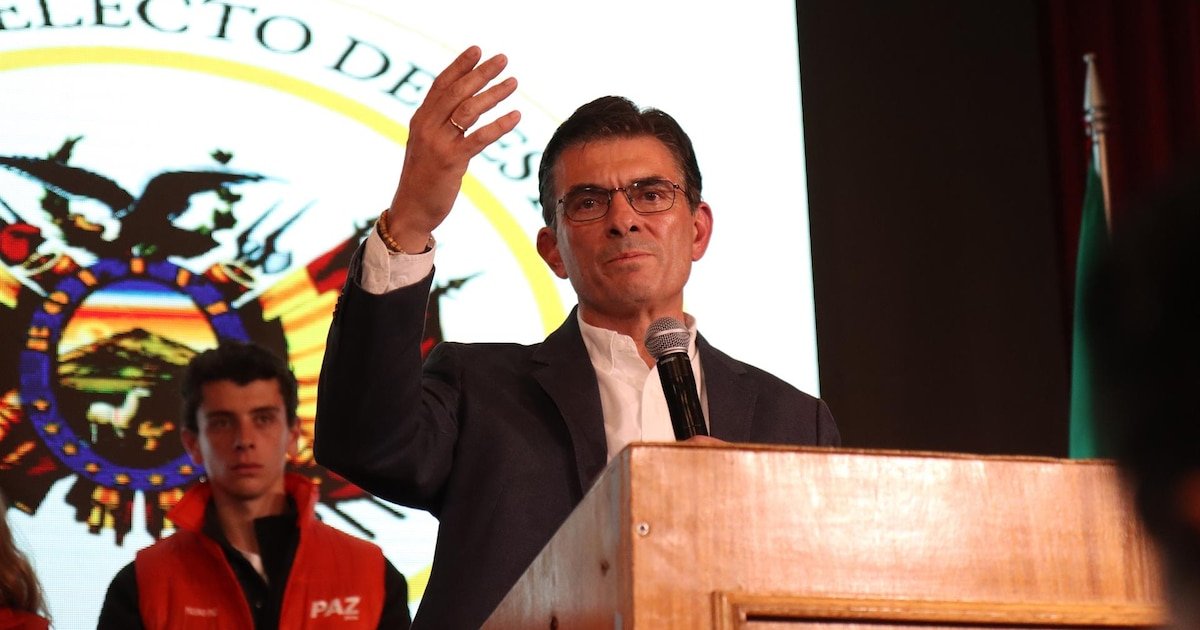
El presidente electo de Bolivia, Rodrigo Paz, anticipó que su gestión establecerá relaciones internacionales únicamente con naciones en las que la democracia sea un pilar fundamental.
“Nuestro mensaje es claro, poner a Bolivia en el mundo y que el mundo venga a Bolivia, y para ello estamos haciendo todos los esfuerzos”, expresó.
Paz describió una intensa agenda posterior al anuncio de los resultados preliminares de la inédita segunda vuelta electoral, donde, con casi el 99% de las actas computadas, aventaja con el 54,73% de los votos al ex presidente conservador Jorge Tuto Quiroga, quien obtuvo el 45,27%.
El nuevo mandatario subrayó que ha mantenido comunicación con más de una docena de jefes de Estado y representantes extranjeros que se han mostrado dispuestos a asistir a su investidura el próximo 8 de noviembre y a abrir nuevas etapas de cooperación.
“Hasta ahora hemos recibido saludos y compromisos de países que comparten los valores democráticos. Mi posición es firme: queremos una relación sólida, pero solamente con quienes entiendan la democracia como fondo”, reiteró Paz en diálogo con medios internacionales.
El presidente electo dejó claro que la política exterior de Bolivia tomará distancia respecto de gobiernos con prácticas que, a su juicio, no se ajustan a esos valores.
Sobre el caso venezolano, afirmó que si bien existe una representación diplomática de Venezuela en La Paz, no comparte “la modalidad democrática que dicen” sostener en el país caribeño.
“No la comparto y asumo que a futuro, nuestras relaciones (serán) dentro del marco de respeto, pero está claro que yo voy a tener una relación con países donde consideremos como Gobierno que tengan la democracia como un principio”, enfatizó.

Como parte de esta línea, Paz sostuvo una conversación telefónica con la líder opositora venezolana y Premio Nobel de la Paz 2025, María Corina Machado, a quien invitó formalmente a su ceremonia de investidura y le manifestó su respaldo a la lucha por restablecer la democracia en Venezuela.
El giro diplomático incluye el propósito de restablecer relaciones con Estados Unidos tras años de distanciamiento y vínculos reducidos desde la expulsión del embajador estadounidense en 2008 durante el gobierno de Evo Morales.
Paz reveló que ya tuvo un primer acercamiento con el subsecretario de Estado norteamericano, Christopher Landau, y expresó su interés en una relación renovada.
“Estados Unidos juega un rol preponderante con el cual vamos a restablecer, Dios mediante, si así es la voluntad de partes, nuestra relación”, dijo.
La postura del presidente electo también incluye el reconocimiento a diversos países del continente.
“Agradezco a Argentina, Costa Rica, Ecuador, El Salvador, Panamá, Paraguay, República Dominicana, Trinidad y Tobago y EEUU por sus buenos deseos y su disposición a apoyar el proceso de estabilización de Bolivia”, señaló Paz.
Añadió que buscará “generar trabajo a futuro de cooperación y de crecimiento conjunto” tanto en la región como con otros continentes.
Sobre la cooperación internacional, Paz aclaró su preferencia por acercarse a organismos multilaterales sin urgencias financieras.
“No estoy cerrado a trabajar con estas entidades, pero es mejor ir con la casa ordenada, porque las cosas son más claras que cuando se acude en la necesidad de créditos que después son candados para el desarrollo”, explicó.
El mandatario electo detalló que ya inició la transición con el gobierno saliente de Luis Arce y prevé recibir una amplia representación internacional en la toma de posesión, con el objetivo de inaugurar una nueva etapa para la presencia de Bolivia en la comunidad global.
(Con información de EFE)
Elections,South America / Central America,Elections / Voting
INTERNACIONAL
Experts slam UN court ruling on Israel, warn opinion is also ‘a real danger to the US’
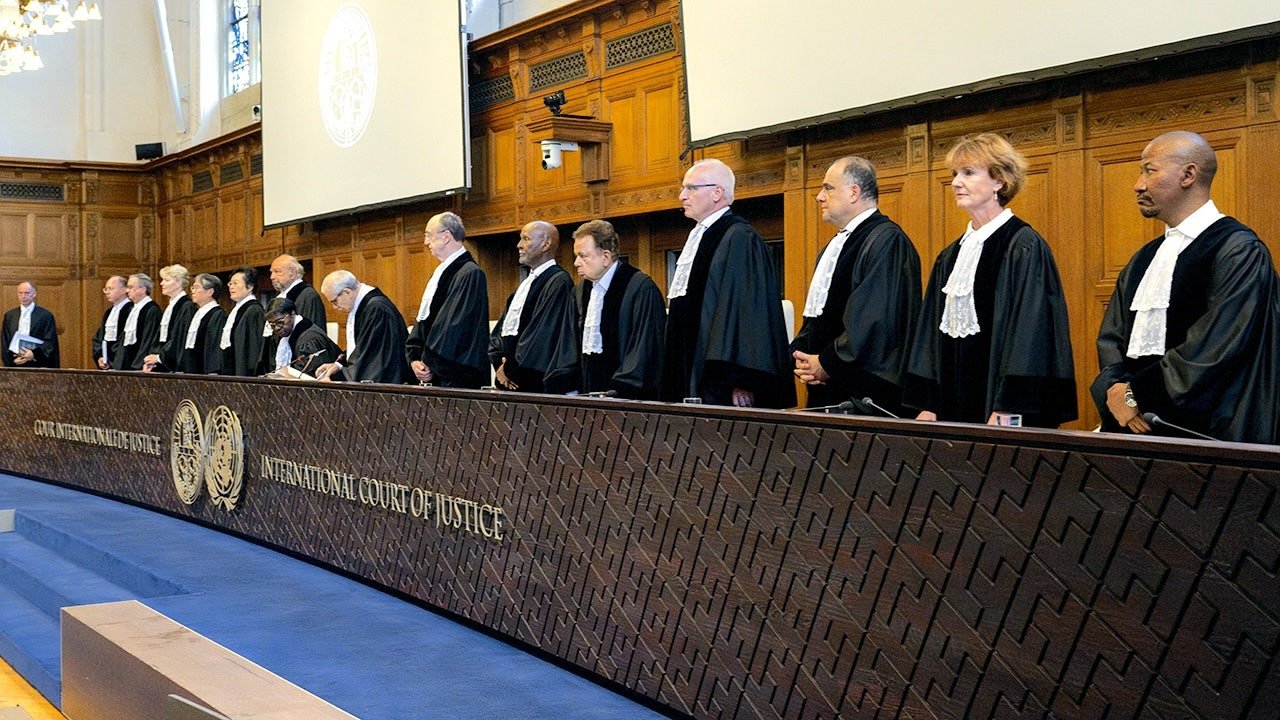
NEWYou can now listen to Fox News articles!
Leading experts on the United Nations and international law on Wednesday blasted the Hague-based International Court of Justice (ICJ) for its non-binding ruling that Israel cooperate with a scandal-plagued U.N. aid agency that the U.S. stopped funding because of its support for Hamas terrorists.
ICJ President Yuji Iwasawa said the Jewish state «is under the obligation to agree to and facilitate relief schemes provided by the United Nations and its entities, including UNRWA.»
DOSSIER REVEALS INFORMATION USED TO EXPLAIN UN AGENCY’S DEEP TIES TO HAMAS IN GAZA
The individuals identified by the IDF as combatants are seen carrying firearms and interacting with U.N.-branded vehicles. (IDF)
Eugene Kontorovich, a professor and director of the Center for International Law in the Middle East at George Mason University Scalia Law School, told Fox News Digital,»The opinion is, most importantly, not a decision of case, or possessing any legal authority whatsoever.»
He warned the ruling is also dangerous to U.S. interests. «The ICJ claims it has ‘moral authority,’ but it must be high on its own supply. The Court concluded that UNRWA is a neutral, legitimate aid agency despite its members having participated in Hamas’s Oct. 7 invasion, and the broad infiltration of its facilities and organization by Hamas, which the U.S. government has acknowledged. It makes up new legal rules from scratch. It is a real danger to the U.S., which has also been repeatedly on the losing end of Advisory Opinions by the politicized Court.»

Mohammad Abu Itiwi during the Oct. 7 massacre. The Hamas Nukhba commander was involved in the murder and abduction of Israeli civilians on Oct. 7 and, according to the IDF was simultaneously employed by UNRWA. (IDF Spokesman’s Unit)
Kontorovich, who is senior research fellow for the Heritage Foundation, added, «Based on this opinion, the ICJ could conclude that the U.S. must continue to work with U.N. organizations it wishes to quit or boycott – or provide aid to terror groups working to kill Americans. The U.S. should quit any treaty giving the ICJ jurisdiction – and recall its judge on the court.»
VANCE HAILS ‘DAYS OF DESTINY’ AS VP SEEKS TO BUILD ON CEASEFIRE AGREEMENT
Israel’s Foreign Ministry wrote on X Israel that it «categorically rejects the ICJ’s ‘advisory opinion,’ which was entirely predictable from the outset regarding UNRWA. This is yet another political attempt to impose political measures against Israel under the guise of ‘International Law.’ Today’s ICJ advisory opinion should have called out the terrorist activity that UNRWA has been involved in: UNRWA employees directly took part in the October 7th massacre and continue to assist Hamas’s terrorist operations – all under the auspices of the United Nations.»
The United Nations Secretary-General António Guterres urged Israel to comply with the ICJ ruling. In response to the Israeli U.N. Ambassador Danny Danon terming the ICJ ruling a «shameful decision,» a spokesperson for Guterres told reporters, «We are counting on the Government of Israel to abide by its legal obligations. I’m not going to respond to the rhetoric by this or that official.»
Anne Bayefsky, Director of the Touro Institute on Human Rights and the Holocaust, told Fox News Digital, «The ICJ – pompously called the ‘World Court’ – is a creature of the United Nations, an institution riddled with antisemitism and bias against the Jewish state.»
CLICK TO GET THE FOX NEWS APP
«So in this case, the U.N. General Assembly adopted a resolution that declared Israel guilty and then ‘asked’ its Court to rubber stamp the pre-determined conclusion – to which the Court responded ‘aye-aye.»
Fox News Digital reported on Tuesday that the Hamas-linked United Nations Relief and Works Agency for Palestine Refugees in the Near East (UNRWA) should play no role in the reconstruction of the Gaza Strip because it employed Hamas terrorists, according to Mideast experts.
united nations,israel,conflicts,terrorism,anti semitism

 CHIMENTOS2 días ago
CHIMENTOS2 días agoPampita recibió un video inesperado de su hija Blanca en el Día de la Madre y no pudo contener la emoción

 POLITICA2 días ago
POLITICA2 días agoDonald Trump habló sobre la ayuda económica de Estados Unidos: “La Argentina está peleando por su vida”

 DEPORTE3 días ago
DEPORTE3 días agoLa reacción en vivo del arquero de Olimpia: «¿Qué hacés, muerto, la concha de tu madre?»


























